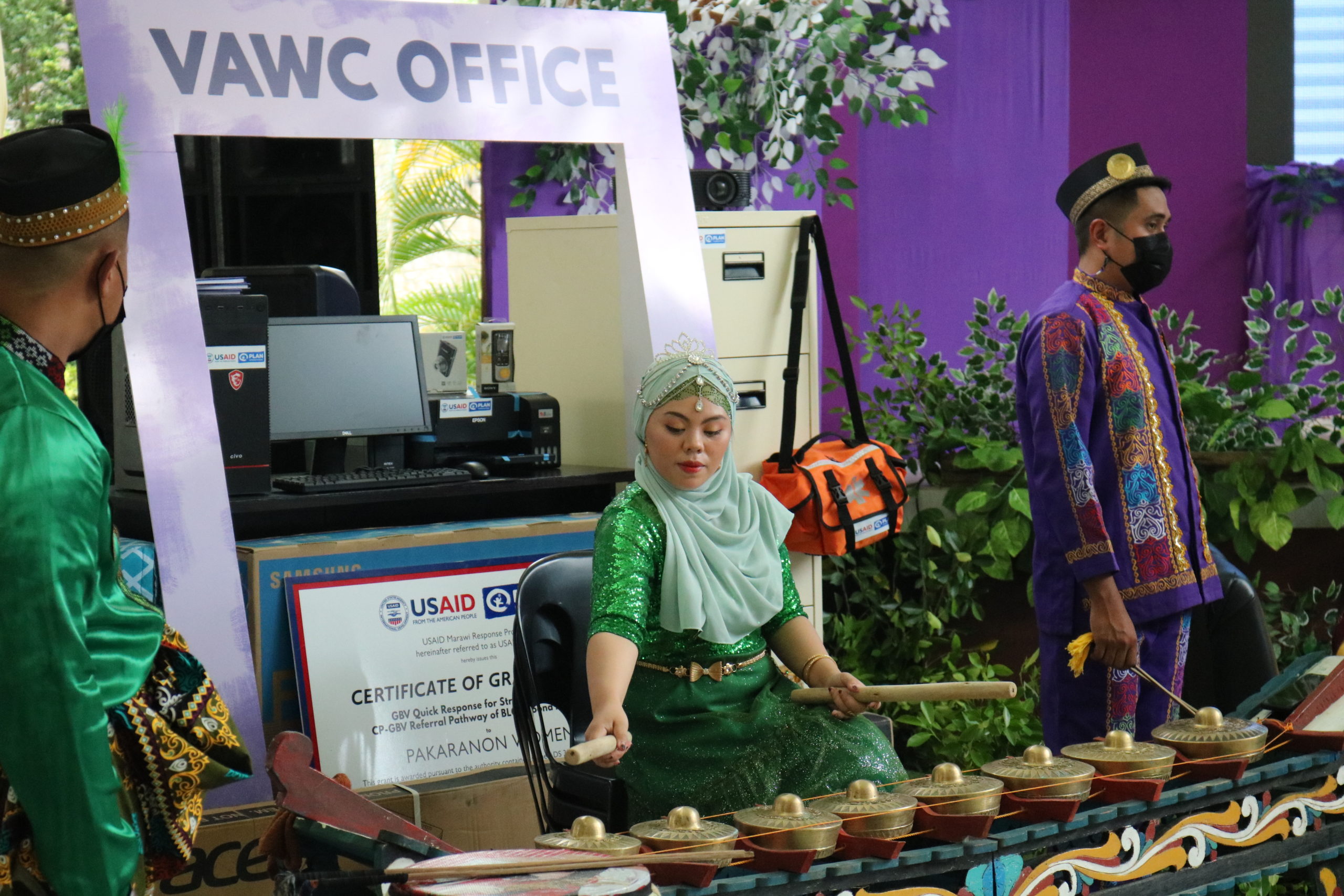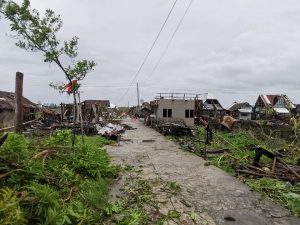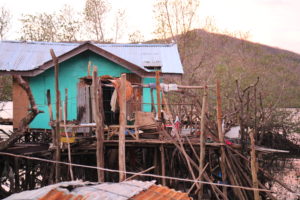The pandemic has brought people to hoard food causing long queues in grocery stores and caused some people to put themselves to risk to compete for food availability. Local businesses and economy are hardly hit resulting into economic recession and contraction.
The government has provided people with immediate goods that last for days only. With this, communities must be proactive in complementing government’s effort by being creative and resourceful particularly in food security.
Each country faces disruptions in domestic food supply chains. This causes food market to have higher retail price while people in the community have a reduced income due to unemployment and dependability of some family members. Farmers’ products are so much jeopardized since both buyers and consumers have cut down some immediate needs for consumption and opt for generating new ways of survival. This heightens alert to the World Bank as countries around the world are at risk to food security.
A joint project of ECOWEB and CORDAID titled “Preventing Transmission of COVID-19 and Increasing Resilience of Vulnerable Communities to Impact of Community Quarantine” supported urban families in food security. Under this component, the project distributed variety of vegetables seeds such as eggplant, Chinese cabbage, stringbeans, okra and many more. Aside from the seeds, beneficiaries also received gardening tools, soil container, organic fertilizer, and garden soil.
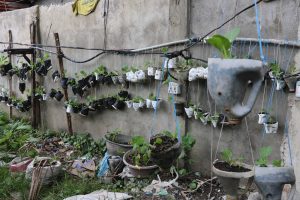
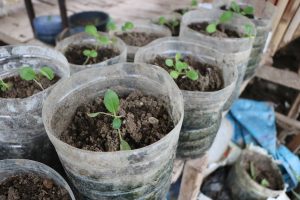
In this light, people around the globe resorted to their old hobby which is pot gardening and planting different species of ornaments and indoor plants. Urban gardening has been the common trends of household all over Philippines. Women in Iligan City has so much stories and experiences to tell about their urban gardening.
Bernardina Tagactac , 65 years old, resident of barangay Tipanoy, Iligan City.
Bernardina learned to grow plants from her parents. Gardening has been the livelihood of her family. Now she’s sharing her knowledge and skills to her grandchildren. The family has more than 1 hectare of land for the urban farming. The land is not theirs but they are permitted to grow crops and vegetables.
“Despite of our limited farm crops, I am still producing enough to supply a stall in the market to gain income for the family. Most of the crops sold are cucumber, stringbeans, and Chinese cabbage. Some of my children graduated in school because of this livelihood.”
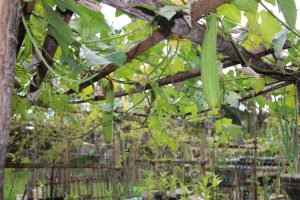
As compared to days before the pandemic, the family’s income is stable. Unlike now that a lot of their crops are stored and eventually got damaged. Competition in the market gets hectic as lots of suppliers compete over market resellers. Current income status got worse affecting the family’s everyday needs.
Bernardina also use containers in their own backyard for container gardening. Some plants viable for this are tomatoes, ginger, cabbage, and onion. Accordingly, empty plastic containers, eco-bag and sack of rice are useful and durable to use for plants.
Mariana Lapinig, a 73 years old widow from barangay Bagong Silang, Iligan City.
Mariana has been doing urban gardening when she was still young. Her parents taught her how important growing own vegetables is. Despite of having limited space in the backyard, she was able to maximize the space and opt for container gardening using plastics she collected.
With the project, she receives seed and added it to her existing humble garden. As she lives alone in the house, she has to struggle to earn for a living. A small sari-sari store keeps her daily income as she needs to live independently.
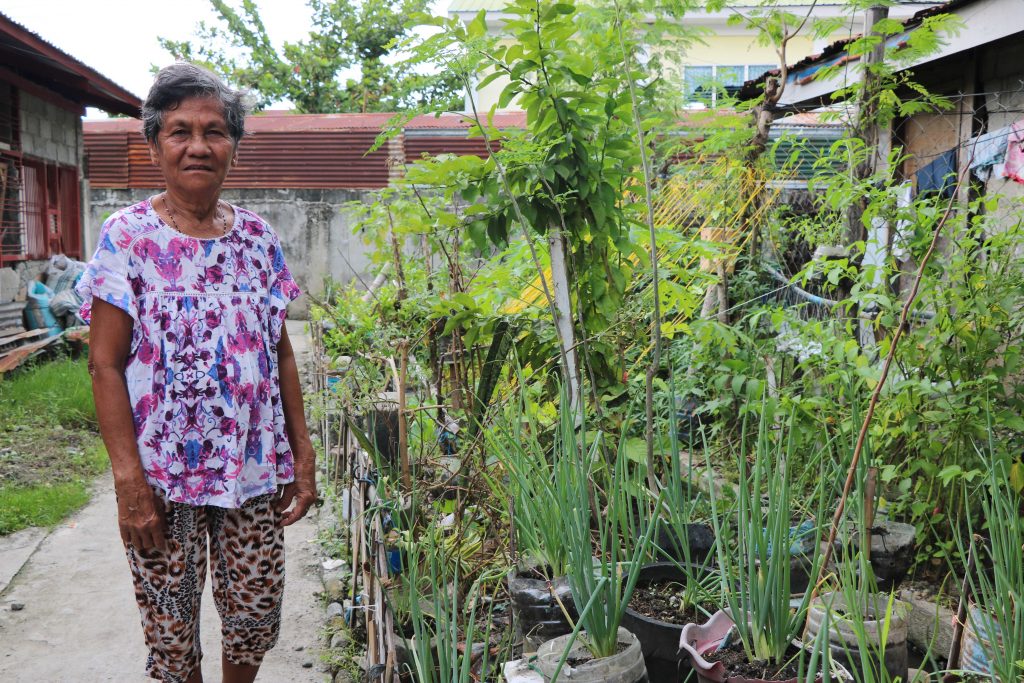
Neighbors are sometimes asking, and she provides without hesitation. She even gave them both seeds and sometimes, seedlings to plant. It is just made sure that giving away vegetables are done often so that her own consumption is not compromised.
Lumen Oponda, 53 years old, a resident of barangay Bagong Silang, Iligan City.
Lumen is an Organic Agriculture NC II graduate at Technical Education and Skills Development Authority TESDA and have been connected with local Civil Society Organization in Iligan City. Being a barangay Agriculture and Fishery Council (BAFC) president, she made sure that what skills and knowledge she has in urban gardening are shared to her constituents. Doing urban gardening is her one way of showing to others that food security is really important beyond the pandemic.
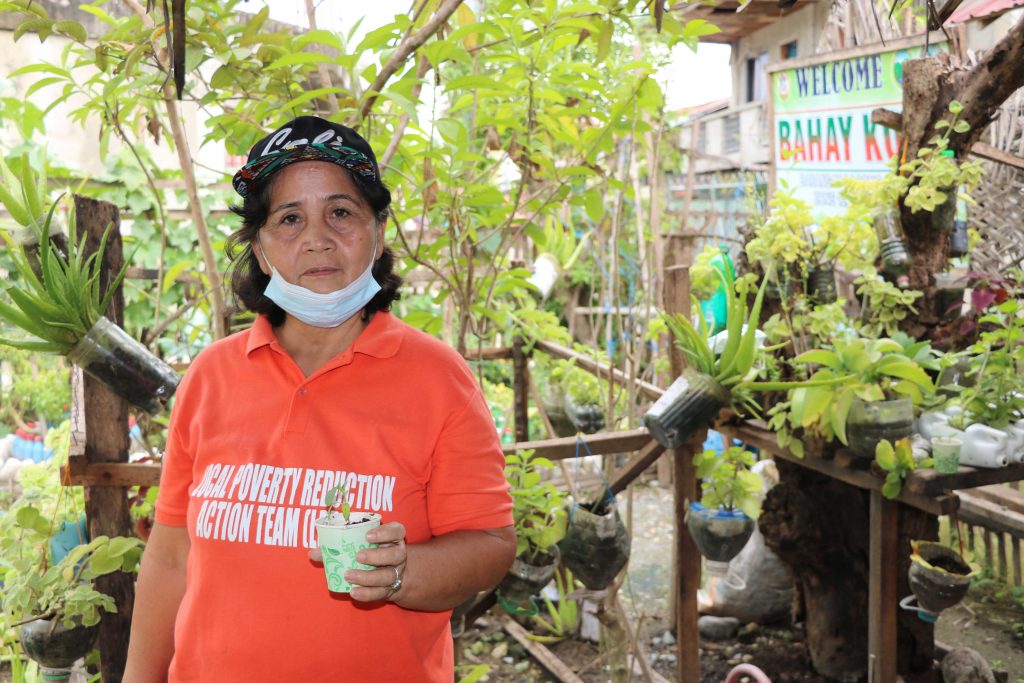
Container gardening takes one to two hours a day. One aspect of a successful and common procedures in urban gardening is to be familiarized with pruning, cultivating, and using organic fertilizer. Households should not always invest in buying commercial fertilizer. According to her, waste management is key to flourish plants. Biodegradable kitchen wastes can turn into an organic fertilizer that surely helps plants grow healthy.
In the community, Lumen shares seeds with others who express their interest to pursue pot or urban gardening. In fact, she has nexus of connection where everyone can deposit and ask seeds in their so-called seed bank.
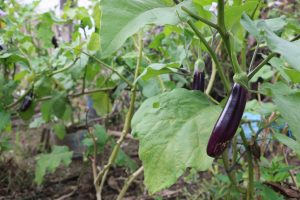
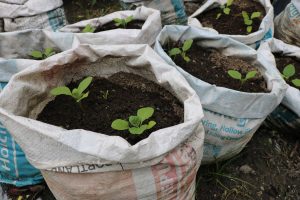
This new normal demand greater tranquility and innovation. The above initiatives and stories resonated with food security and nutrition during this pandemic. These stories should compel people to be proactive, scale up food production at their own backyard.
Urban gardening is just some of the steps toward enhancing community capacities in food resiliency and sustainability. ECOWEB together with CORDAID planted hope to the lives of many locals who are severely challenged by this dilemma. The most essential ways to fight COVID-19 are to engage with physical activities and live a healthy lifestyle.


